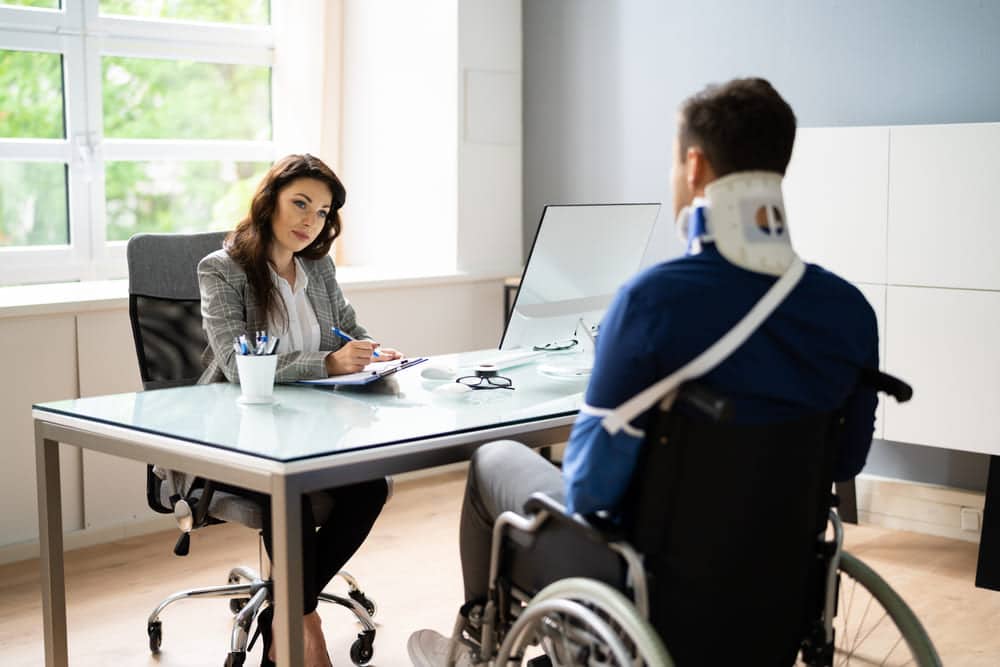Many jobs are physically demanding and may lead to injuries. Nurses, doctors, and other healthcare workers are no exception, but are they eligible for workers’ comp? If you’re a frontline worker, it’s important to know whether you can file for benefits with a workplace injury lawyer.
Below, the team at Pyrros, Serres & Rupwani explains the prevalence of workplace injuries in the medical field and whether benefits are available. Contact our firm if you’d like to consult a workers’ compensation lawyer in New York about your options.
Who Is Eligible for Workers’ Compensation Benefits in New York?
New York workers’ compensation eligibility is broad. Under state law, businesses must provide workers’ compensation insurance coverage for every employee. This includes private and public healthcare practices and hospitals.
So, whether you work in a restaurant, a retail store, a hospital, or anywhere in between, you have mandated coverage. Unlike a personal injury case, you don’t have to prove that your employer is at fault, though the injury must be work-related. No-fault workers’ comp covers your medical expenses and a portion of your lost wages if you end up injured in your place of work.
Exploring the Dangers of Working in Healthcare
Many doctors, nurses, and other medical professionals are relieved to know they’re not excluded from workers’ compensation benefits. The healthcare industry comes with plenty of physical challenges. Serious on-the-job injuries could keep someone from their duties and lead to requiring the assistance of a workplace injury lawyer.
A study from Cureus found that nurses are especially vulnerable to work-related injuries and make up 47.7% of all healthcare workers who become ill or injured on the job.
Data from the Bureau of Labor Statistics shows that illness and injury rates are steadily declining among American laborers. However, hospitals continue to have more affected workers than other industries. For every 100,000 full-time employees, there are 157.5 cases of hospital employees missing work, which is much higher than the national average of 105.2.
Why do healthcare workers have a higher risk of injuries? The nature of their job can be extremely hazardous. Common causes of workplace injuries and illnesses include:
- Infections: Frequent exposure to sick patients makes doctors and nurses susceptible to infections.
- Slip-and-fall accidents: All it takes is one slippery surface for someone to fall while working in a hospital, healthcare clinic, or similar setting.
- Needle sticks: If a needle accidentally pokes an essential worker instead of a patient, they may face health setbacks.
- Combative patients: Some patients are physically violent toward their healthcare team. Those on the receiving end may end up with bruises, lacerations, or broken bones.
- Overexertion: The long hours and physical demands of the job cause many health care workers to suffer from overexertion or repetitive stress injuries.
When serious illnesses or bodily injury prevent you from continuing in the healthcare field, it’s wise to consult a workplace injury lawyer. You may be able to file for workers’ comp benefits in New York and receive some financial support during your recovery.
What To Do If You’re Hurt While Working in a Healthcare Facility
Under New York law, doctors, nurses, and other employees are eligible for workers’ compensation benefits. However, just because you’re eligible doesn’t mean your claim will be approved. Filing for workers’ comp in New York is a complex process that involves the following steps:
- Report the injury: Once the accident happens, immediately report it to the appropriate parties. The injury must occur within the workplace while performing work related duties.
- Seek medical care: Your claim could be denied if you fail to treat the injury right away. Let a medical professional diagnose and treat your injury before you seek legal advice.
- Consult an attorney: It’s now time to meet with a workers’ compensation attorney in New York. Discuss the unique details of your case, including the cause of the injury and your projected time away from work.
- File the paperwork: You must file the necessary paperwork with the Workers’ Compensation Board. A lawyer can assist with hospital staff injury claims to prevent common clerical errors, which may result in the denial of your claim.
- Advocate for benefits: If your claim is denied, a workplace injury lawyer can review the details and advocate for you. They may gather additional evidence about your injury in an attempt to appeal the decision.
Understand Your Healthcare Workplace Benefits After a Claim Is Approved
If an insurer approves your claim, you can begin receiving workers’ compensation benefits while you recover from your injury. How much should you expect? The New York Workers’ Compensation Board determines the maximum weekly benefits that hurt laborers may receive.
As of July 1, 2025, any workplace accident that occurs after this date will make the injured party eligible for up to $1,222.42 in tax free benefits every week. What exactly does this amount include?
Lost Wages
Some workplace illnesses or injuries can keep healthcare professionals out of work for more than seven days. When this happens, they can apply for workers’ comp benefits in hopes of recouping some of their lost wages. Depending on one’s salary, they may only receive a portion of their lost wages to comply with the state’s maximum weekly payout.
Medical Treatment
According to a report from KFF, 47% of U.S. adults say affording healthcare costs is either somewhat or very difficult. Workers’ compensation insurance aims to make treatment more affordable for those who are hurt on the job. It should cover some or all of one’s treatment plans and related medical expenses, such as:
- Doctors visits
- Hospitalizations
- Prescription drug costs
- Fisioterapia
- Equipamiento médico
- Testing and Surgery
If you’re concerned about coverage for your treatment, a workplace injury lawyer may be able to provide some clarity.
Disability Benefits
If an illness or injury prevents you from returning to work, you may be eligible for disability benefits. Funding for workers depends on the severity of their condition and whether they can work in some capacity.
Many even a healthcare workers who apply for workers’ comp receive benefits for a temporary and partial disability. In some cases, injured parties are permanently disabled and lose their earning capacity altogether. Those with permanent disabilities could receive long-term benefits, depending on their circumstances.
Consult a Workers’ Compensation Attorney in New York Today
As a New York nurse or healthcare worker, you’re eligible for workers’ comp benefits. Hiring a workers’ compensation lawyer can help you better understand the system and navigate the filing process. If you’re looking for a qualified workplace injury lawyer, turn to the team at Pyrros, Serres & Rupwani.
Our founding attorneys have decades of experience practicing workers’ comp, disability, and personal injury law. Discuss your case with us, and we’ll provide a legal strategy for your unique circumstances. Submit our online contact form or call (718) 626-7730 today.
Frequently Asked Questions for a Workers’ Compensation Lawyer in New York
Do you still have unanswered questions about healthcare workers’ compensation and filing a claim? Receive more insights below.
How Common Are Workplace Injuries?
Workplace injuries are extremely common. The National Safety Council reports that someone gets hurt in the workplace every seven seconds, for a total of 4.6 million injuries each year.
Am I required to have a Lawyer for Workplace Injury Claims?
No, you’re technically not required to have a lawyer for your workplace injury claim. That said, it’s wise to seek legal guidance, as a knowledgeable attorney can help you avoid costly errors and guide you through the process.
How Long Can I Collect Workers’ Compensation For?
It depends on the extent of your injury and your recovery time. A workplace injury lawyer can review your claim, including a physician’s recommendations, and assist you with the filing process.


